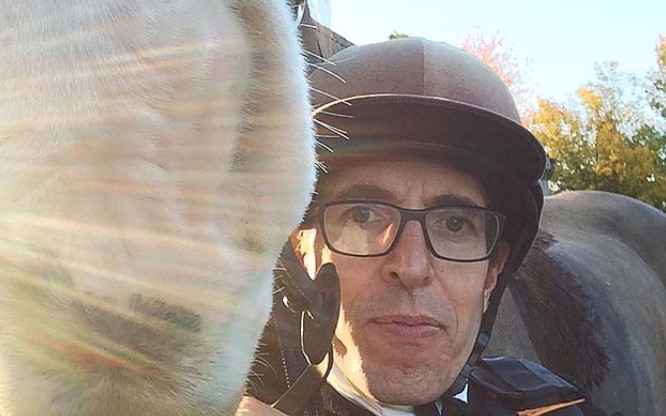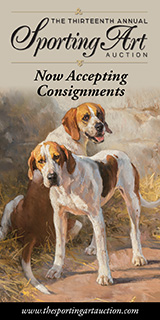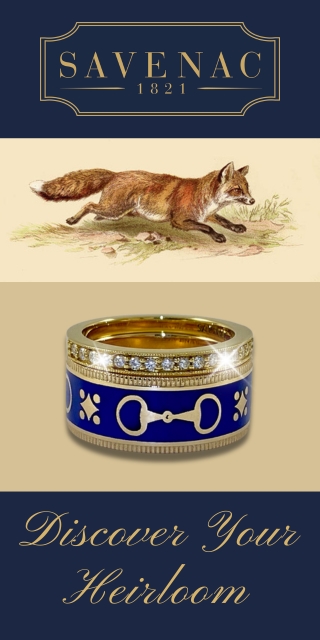Humor
Do More Foxhunting
One of ten resolutions by the author to help his next fifty years pass more smoothly than his first Do more fox hunting. I know I keep banging on about this but here’s the deal: if you were suddenly to find a hobby which combined the buzz of class A drugs, the adrenaline rush of a second world war dogfight, in outfits by Beau Brummel, on an incredible leaping beast on the same trip as you, while totally pissed, at the most convivial and glamorous party since the Duchess of Richmond’s ball, in country as magnificent as God has ever devised, why on earth would you not want to do it all the time? Re-Posted May 9, 2022 (from The Spectator) British prize-winning journalist and novelist James Delingpole describes himself as a libertarian conservative.... This content is for subscribers only.Join NowAlready a member? Log in here
Read More
You Might Be a Foxhunter If…
 John Anderson, writer/editor/foxhunter / Douglas Lees photoIt’s been said that a “highbrow” is someone who can listen to Rossini’s "William Tell Overture" and not think of the Lone Ranger. In the hunting world, that might be said of anyone who’s never heard of Jeff Foxworthy’s “You Might Be A Redneck” jokes. Leader of the Blue Collar Comedy genre, Foxworthy’s shtick consists of such gems as:
John Anderson, writer/editor/foxhunter / Douglas Lees photoIt’s been said that a “highbrow” is someone who can listen to Rossini’s "William Tell Overture" and not think of the Lone Ranger. In the hunting world, that might be said of anyone who’s never heard of Jeff Foxworthy’s “You Might Be A Redneck” jokes. Leader of the Blue Collar Comedy genre, Foxworthy’s shtick consists of such gems as:
If you can recognize your friends by the sound of their mufflers, you might be a redneck.
If your school fight song was “Dueling Banjos, …”
If you’ve ever cut your grass and found a car, …”
If you refer to the sixth grade as “My senior year, …”
Borrowing from this concept, herewith are a few examples of “You Might Be A Foxhunter.” (Some of these apply to horse people more broadly, but all of them apply to foxhunters.) So here we go.
Pulling Out
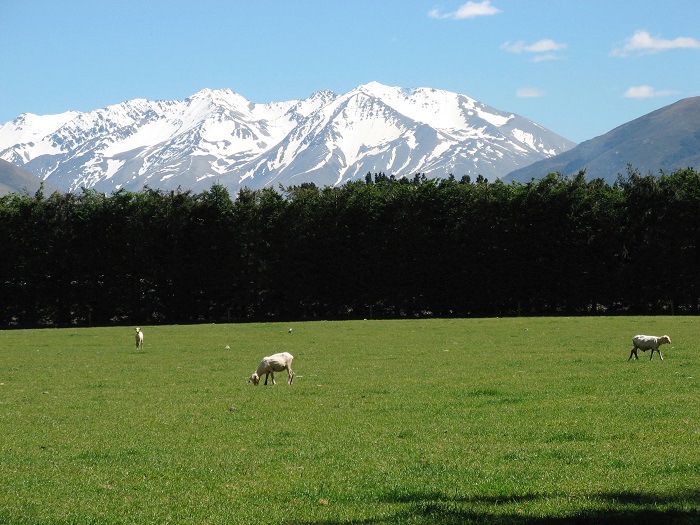 "...you have hacked into another pack's territory."
"...you have hacked into another pack's territory."
There comes a day in the hunting field when, despite the sport, you have to pull out. Your horse has thrown a shoe, or maybe your wife is in labor. Possibly the hounds have crossed the ridge into the next county and you have a winded horse. Or you notice the sun has set and you are six miles from the trailers.
And here is the challenge: how do you get back to the fixture?
The Witch With Warts: Discovering America
Back in the late 1950s, Deirdre and her friend Sarah, both just nineteen, came to America from post-war Britain, where shortages still prevailed and ration books were in use. Sarah was to train horses and riders for Jamie Kreuz at Bryn Mawr Farms outside Philadelphia. Deirdre was to work for the Insurance Company of North America in Philadelphia and help Sarah on weekends. The pair's adventures discovering America, land of plenty, while struggling with a lively collection of foxhunting horses, timber horses, and show horses, have been published in these pages. (Use our Search function with the author’s name to find those stories.) What follows is a new installment revisiting “The Witch With Warts.”
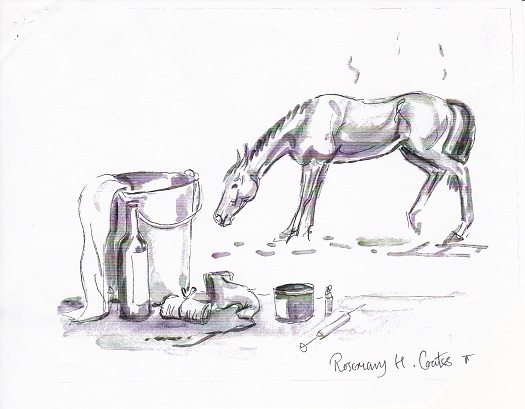 Witch / Rosemary Coates illustration
Witch / Rosemary Coates illustration
Soon after our arrival in the States, Sarah and I were left in charge of Bryn Mawr Farms while the rest of the help went with the show horses to the Harrisburg Horse Show for the week. Jamie promised the two of us cubhunting from the farm and cocktail parties at the show as a reward. I took the week off as a break from my office job. This I quickly realized was going to be anything but a vacation.
High Jinks With Pink Gin
Back in the late 1950s, Deirdre and her friend Sarah, both just nineteen, came to America from post-war Britain, where shortages still prevailed and ration books were in use. Sarah was to train horses and riders for Jamie Kreuz at Bryn Mawr Farms outside Philadelphia. Deirdre was to work for the Insurance Company of North America in Philadelphia and help Sarah on weekends. Their adventures discovering America, land of plenty, while struggling with a lively collection of foxhunting horses, timber horses, and show horses, were published in five parts on these pages and popularly received. (Use our Search function with the author’s name to find those stories.) What follows is a new installment revisiting “Pink Gin, The Beer Swilling Timber Horse.”
Illustration by Rosemary H. Coates
Sarah and I had not been long in the States when Pink Gin arrived at Bryn Mawr Farms. Billy, who mucked out for us, was, as usual, the first to find fault with him.
“He do get drunk, he do. Proper beer-swiller he be. And he eats eggs and molasses with all his feed. Lord, if only I could eat like that!”
Preparation’s a Pain; Hunting’s a Hoot
Lori and OzzyIt took forty minutes in the pea soup fog early this morning to bring the horses in. Something about the early morning darkness convinces them they are feral. Although with Ozzy’s skin he would last about two minutes in the wild. Not to mention his feet....
Horses are apparently unable to connect the sight of human figures in the dark with the same people they see at least twice a day 365 days a year. This mental dilemma triggered an extended episode of BAF.*
Last night, also in the dark, found me in the backyard manning the grill. I was making dry-rubbed drumsticks for the tailgate, following Roger Mooking’s recipe, whoever he is.** My original plan was to grill them in the morning, and then I came to my senses. Also baked some S'mores cupcakes. I did not have a cupcake tin so I just filled the paper cups and crammed them tightly into a baking pan. My hope was that maybe squeezing them together would give them more support and shape. They exited the oven shaped like amoebas but luckily they tasted better than they looked. Hubby liked them but was suspicious and wanted to know “what is the brown stuff on the bottom?” That would be Graham Crackers, Rick. As a Boy Scout, Rick went home with a headache before his first overnight. Obviously before the campfire was even lit. The chicken looked just like the photo in the magazine.
Stinkum Dinkum and the Christmas Eggnog
Illustration by Rosemary CoatesBack in the late 1950s, Deirdre and her friend Sarah, both just nineteen, came to America. The pair had left Britain, where post-war ration books were still in use. Sarah was to train horses and riders for Jamie Kreuz at Bryn Mawr Farms outside Philadelphia. Deirdre was to work for the Insurance Company of North America in Philadelphia and help Sarah on weekends. What follows is Part VI of their adventures. Find the first five in the Horse and Hound drop-down menu, under Humor.
Dinkum was a hideous black horse with a foul temper. He acquired his stable name, Stinkum, right from the start. Billy, who mucked out for us, warned us about him as soon as we set foot in the barn.
Sex Spot: The White, Furry Menace
Back in the late 1950s, Deirdre and her friend Sarah, both just nineteen, came to America. The pair had left Britain, where post-war ration books were still in use. Sarah was to train horses and riders for Jamie Kreuz at Bryn Mawr Farms outside Philadelphia. Deirdre was to work for the Insurance Company of North America in Philadelphia and help Sarah on weekends. What follows is Part V of their adventures, which have included Part I: “How to Bridle a Green Field Hunter,” Part II: “The Witch With Warts,” Part III: "Pink Gin: The Beer Swilling Timber Horse," and Part IV: "Purrfec' Granary."
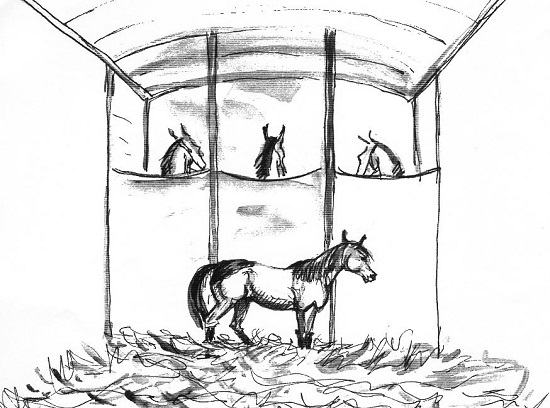 Illustration by Rosemary H. Coates
Illustration by Rosemary H. Coates
Two weeks after Sarah and I arrived in the States we were on the road northwards with twenty-five hunters. They were entered at the Piping Rock Horse Show on Long Island. The horses were loaded into nine-horse trailers for their journey. In the first compartment six horses faced each other across an aisle. Although three horses could be loaded into a separate compartment at the back, there was only one 11.2-hand pony in there—so small, he was up to his belly in straw. This was Sex Spot who would not travel with another horse; he had the three back stalls to himself. He got his name because he had a football-sized black spot on his rump, in an otherwise white coat.
Purrfec’ Granary
Back in the late 1950s, Deirdre and her friend Sarah, both just nineteen, came to America. The pair had left Britain, where post-war ration books were still in use. Sarah was to train horses and riders for Jamie Kreuz at Bryn Mawr Farms outside Philadelphia. Deirdre was to work for the Insurance Company of North America in Philadelphia and help Sarah on weekends. What follows is Part IV of their adventures, which have included Part I: “How to Bridle a Green Field Hunter,” Part II: “The Witch With Warts,” and Part III: Pink Gin: The Beer Swilling Timber Horse.
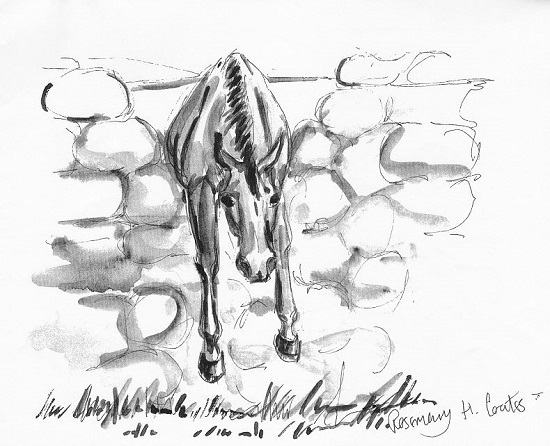 Illustration by Rosemary Coates
Illustration by Rosemary Coates
Sarah and I clearly remember Billy telling us about Purrfec’ Granary. Billy mucked out for us but he also had a way with words. This is how he described her infuriating ability to demolish stone walls and gallop off toward the rising sun.
“She lie down against a wall of stone—it's a trick she learned—and she do gently poosh that darned wall clean over. Then off she go wid ’er tail over herself!”
Pink Gin—The Beer-Swilling Timber Horse
Back in the late 1950s, Deirdre and her friend Sarah, both just nineteen, came to America. The pair had left Britain, where post-war ration books were still in use. Sarah was to train horses and riders for Jamie Kreuz at Bryn Mawr Farms outside Philadelphia. Deirdre was to work for the Insurance Company of North America in Philadelphia and help Sarah on weekends. What follows is Part III of their adventures, which have included Part I: “How to Bridle a Green Field Hunter,” and Part II: “The Witch With Warts.”
Illustration by Rosemary Coates
We had not been long in the States when Pink Gin arrived at Bryn Mawr Farms. Billy, who mucked out for us, was, as usual, the first to find fault with him.
“He do get drunk, he do. Proper beer-swiller he be. And he eats eggs and molasses with all his feed. Lord, if only I could eat like that!”
Pink Gin (not his real name) was a timber horse with a record of wins. Since most timber racing is in the spring, pre-season training often means blizzards and temperatures averaging ten degrees Fahrenheit. This was one of the reasons for the high-calorie diet that included beer and eggs.


